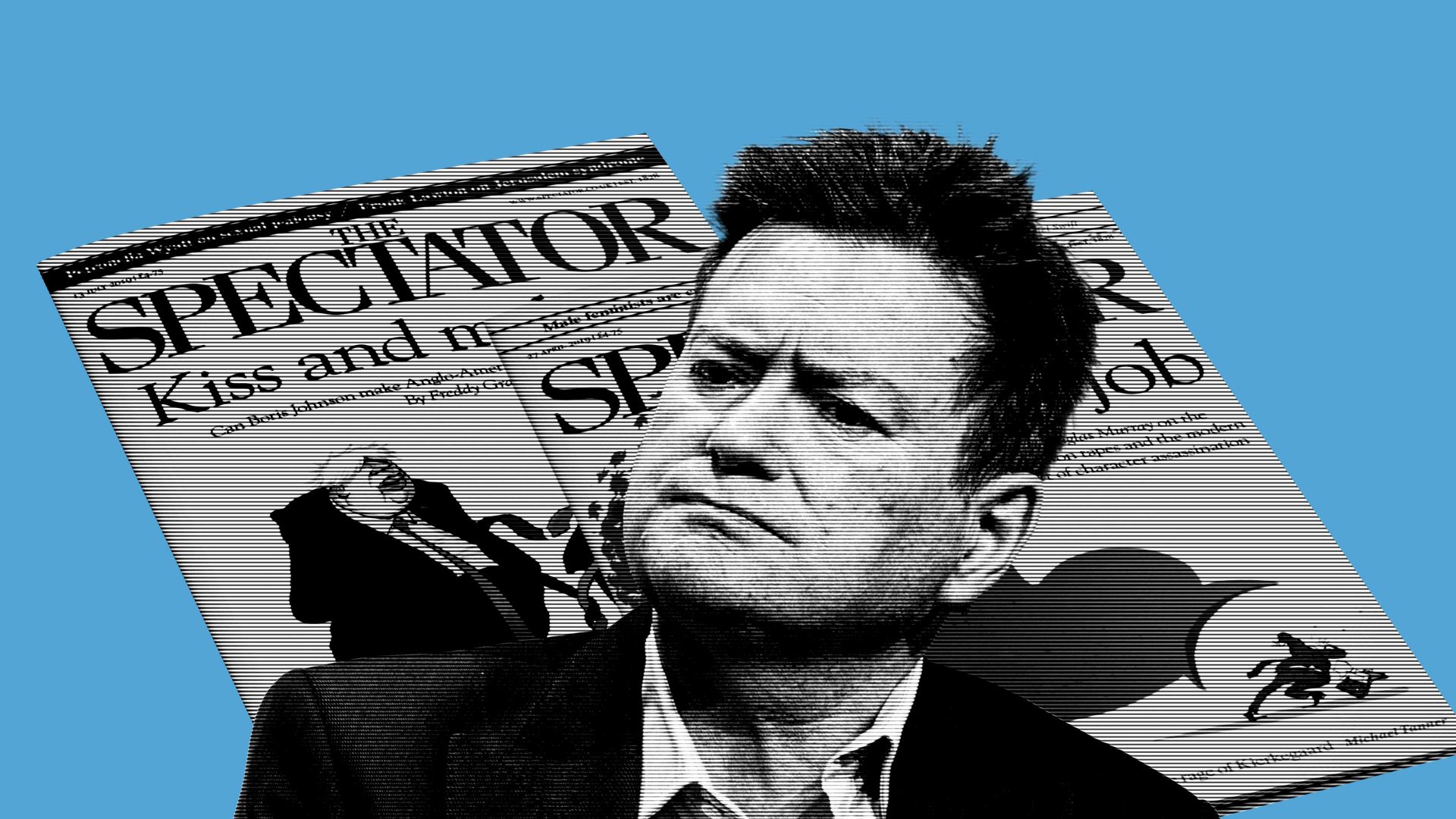Why is it that so many rich men want to emulate Citizen Kane? How much better the world might be if, instead, they followed Bill Gates in his quest to eradicate malaria. There are plenty of wretched diseases in need of wealthy opponents. Instead, these people seem unable to resist the urge to become media magnates.
Now Sir Paul Marshall appears to have been heavily infected by the Kane bug and has bought the Spectator for a reported £100m. Inevitably, there are queries over how his strong beliefs, both political and religious, might affect the magazine and its message.
Since Elon Musk bought Twitter, his often extreme views have been broadcast to the world. Not every modern mogul takes that egotistical approach though. Jeff Bezos, Amazon founder, bought the Washington Post in 2013 and, despite recent controversy over leadership in the newsroom, Bezos does not seem to have imprinted his personal views on the business.
As for Rupert Murdoch, his hostility to the EU undoubtedly permeated his UK outlets as, more worryingly, his conservative politics appeared over the last election to have influenced the Times. The Canadian Conrad Black had similar ambitions, but his plans went so awry that he landed in jail.
It is in part down to him that Marshall, who made his fortune in hedge funds, is building a media empire. Black’s Hollinger International had owned the Telegraph group in the UK, including the Spectator magazine, but in 2004, despite vigorous opposition from Black himself, it was sold to the Barclay Brothers, a secretive pair whose money had originally been made in the dimmer recesses of the property world. Most of that money now seems to have disappeared and, for months, would-be buyers have been eyeing up the Telegraph group.
On the face of it, Marshall’s £100m looks surprisingly generous for a business that turned over only £21m last financial year for a pre-tax profit of just £2.6m. It won’t be a money-spinner.
Marshall’s devotion to the anti-EU cause is not out of keeping with the Spectator’s stance: its political views reflect those of the Telegraph group generally, while managing to avoid its more rabid excesses.
But Marshall’s media ambitions are the cause of some disquiet. A former member and funder of the Liberal Democrats, he has moved fervently to the right and is the joint owner of GB News, the broadcaster that provides a comfortable, extremely well remunerated, platform for Nigel Farage. Marshall’s partner in GB News is Legatum, an investment firm that poses as a thinktank in which the right wing and evangelical Christian leanings of its founders are apparent.
The Spectator’s new proprietor shares those religious views and has not been shy about voicing them to interviewers. Last year he was instrumental in setting up the Alliance for Responsible Citizenship, which brings together an international assortment of right-leaning academics and politicians to discuss religious, philosophical, moral and cultural subjects. Some of that thinking finds its way on to UnHerd, the online platform that was Marshall’s initial foray into media in 2017. It proclaims a lack of any political allegiance but rather a mission to challenge “herd mentality” wherever it finds it. So far, it seems to have stayed largely true to that credo.
The editor-in-chief, Freddie Sayers, interviewed by Elizabeth Oldfield for her Sacred podcast, said that “a lot of our contributors are becoming Christian,” although he was adamant that he did not subscribe to any established religion. On politics, however, he seems very much aligned with Marshall. He told Oldfield of his disagreement with the government’s lockdown during the Covid pandemic and how it had strengthened the value he puts on freedom.
Some of those trying to establish Marshall’s motives for buying the Spectator suggest that he might be aiming to influence the election for the leadership of the Tory Party. But even if he does have a favourite, the magazine’s reach is actually more limited than its image as the house magazine of the Conservative Party would imply, and its endorsement would only sway a small fraction of those voting. He’s a very wealthy man taking another step into media moguldom. He might even try to buy the Telegraph itself. A little influence over a national publication may be enough to keep yet another would-be media mogul happy.




